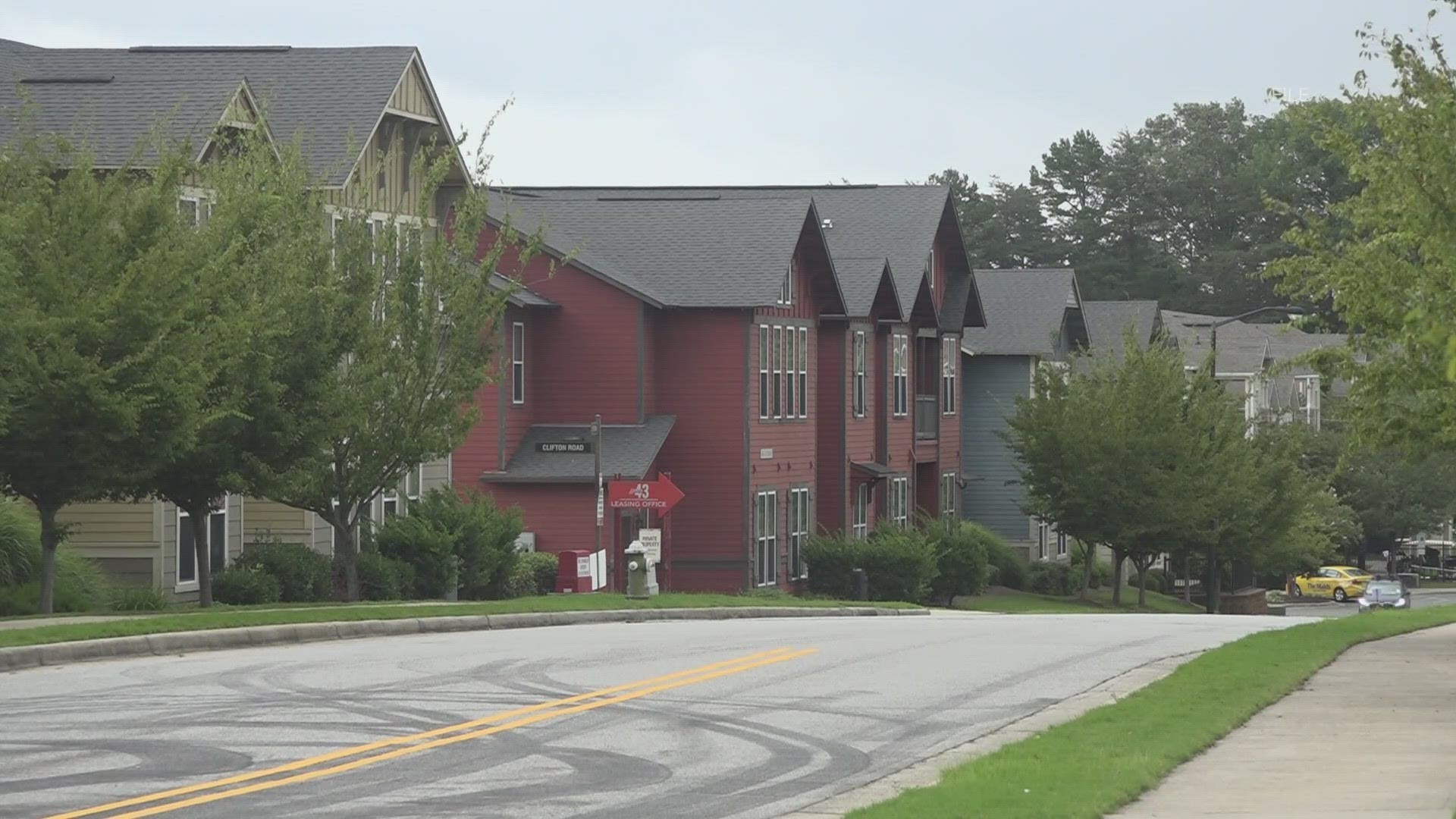GREENSBORO, N.C. — Finding an affordable place to live can be hard for many, "we are facing a shortage of affordable and work-force housing in Greensboro as many communities are across the country," President of Community Foundation of Greater Greensboro, Walker Sanders said.
It's a reality many folks face, Sanders said in order to fix this issue, thousands of homes and living units would need to be restored or built in the area.
To help aid the affordable housing crisis here, the Greensboro Housing Loan Fund, a public-private partnership for attainable housing, is officially in business. The targeted $32.5 million loan program, for which $21 million has been raised to date, is aimed at for-profit and nonprofit developers of local, multifamily structures.
The program’s goal is to increase the inventory of attainable housing in Greensboro through new development and repair/rehabilitation of existing housing.
To qualify, borrowers must have recent relevant, attainable housing development experience, and their planned development must be within Greensboro’s city limits. Loan funds may be used to acquire or refinance and, if needed, rehabilitate existing attainable housing. This is not a home loan or rental subsidy program.
"We want you to come build housing in Greensboro, and we want that housing to be high quality, we want it to be mixed-income so that the way these deals can be structured is that a number of units — if it’s a 400 unit complex, 300 of those would be market rate and perhaps 100 are below market rate," Sanders said.
It's not just about building new homes and apartment complexes. Housing Sector Leader with Self-Help Credit Union, JJ Froehlich said this money could also be loaned to developers looking to fix and preserve affordable homes that are currently here in Greensboro.
"Greensboro has a lot of affordable housing stock but it's aging and is really at risk of being flipped to higher rents or just decaying and not being safe housing for people," Froehlich said.
As for a timeline, they are looking to get developers on board as soon as possible, meaning Greensboro may see new affordable housing in the area as earlier as two years.
The $21 million funding will be administered by two Community Development Financial Institutions (CDFIs) with two different loan programs whose lending activities differ in scale:
$8 Million: Institute Capital (ICAP), an affiliate of the National Institute of Minority Economic Development, will who are working to create thriving economies in diverse Greensboro communities. These loans are targeted to attainable housing developers, community-based development organizations, and small businesses.
$13 Million: Self-Help Ventures Fund, part of Self-Help’s family of nonprofit organizations, will offer loans to borrowers who, having secured market rate senior debt financing, require supportive gap financing for both preservation of existing attainable housing and construction of new attainable housing. These loans are targeted to sole proprietors, partnerships, LLCs, corporations, and nonprofit or for-profit entities.
The creation of a housing loan fund was recommended in the City of Greensboro’s 10-year Housing GSO Plan in 2020. The Community Foundation of Greater Greensboro has partnered with the City to make the fund a reality. Greensboro City Council committed $5 million from the 2022 housing bond funds to the ICAP portion of the program.
Both the City and the Community Foundation have partnered with several regional banks and corporations to support the fund, and the Community Foundation continues to secure support through private philanthropy.
If you are interested in investing in the fund, please contact the Community Foundation at 336-379-9100.

